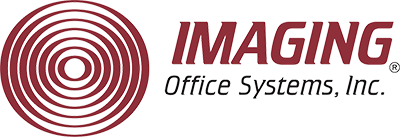Large, multi-purpose business application suites are on their way out, and honestly, that’s not a very bold statement. The true needs of business vary immensely. Very similar companies may do things very differently. Even in the same company, different business units usually need vastly different tools and capabilities to support their role. And as business conditions change, tools and capabilities need to be adjusted or changed.
role. And as business conditions change, tools and capabilities need to be adjusted or changed.
Cloud provides instant adjustment, customization, and scalability at the click of a button. Swap out one SAAS for another! Never before have the capabilities of a business been so open to interpretation and experimentation. The “cloud” might as well be called a “canvas.”
Centralized Computing in the Age of Distributed Capability

The future of enterprise business computing, as we see it, will be defined by conglomerations of unique cloud-based computing cells, held together across multiple clouds, on-prem and IoT devices by centralized administration, encryption, authentication, security, network segmentation, data integrity and management…
And we plan to be building our fair share of them (the conglomerations of unique cloud-based computing cells, that is.)
It is, in fact, a big part of the future for Imaging Office Systems, as we continue to innovate on our core expertise of business data management. We used to build large physical room-sized (and bigger) automated file storage and retrieval systems. Then, we started helping our customers turn their paper files into digital files. Now, we’re building what we (and many other people) call an enterprise content management system, ECM for short. And you might need one.
OK, sales pitch over. Back to the centralized dataspace, comprised of dataflows from cloud cells, that will become a crossroads of information…
Like little miniature internets, these crossroads will provoke development of new ideas that can capitalize on this new space…ideas like IFTTT, which stands for “if this, then that.” IFTTT is currently a free web-based service that allows you to create chains of simple conditional statements, called applets. In IFTTT, an applet is triggered on one internet platform (like Google, Facebook, etc.) by changes that occur on another internet platform. For example, an applet might trigger a certain Facebook post if a user tweets out a certain hashtag. There’s a lot of potential for this kind of technology!
Humans Will Operate the World Through a User Interface
 Elements of user interface—phone notifications, for instance—are becoming more important than the actual apps behind them. (Steve Jobs was onto something!) Indeed, how our apps integrate with each other, us, and our environment will become increasingly important as we forge ahead into this third decade of the 21st century.
Elements of user interface—phone notifications, for instance—are becoming more important than the actual apps behind them. (Steve Jobs was onto something!) Indeed, how our apps integrate with each other, us, and our environment will become increasingly important as we forge ahead into this third decade of the 21st century.
I think centralized meta-languages could emerge to streamline tedious one-to-one app integration. Then, apps would become more like nodes of intent transforming into processes that make stuff happen!
Imagine a mass evolution of apps that can readily sync with each other (through a common, standardized language) and interact with us and other elements of our environment…this could bring many, many new things. Especially once we graduate from the form factor of the smart phone (that’s still a few years off though)…
In this context, data and logic become kinetic forces instead of static assets. The hilt unleashes the lightsaber blade, so to speak. Just imagine entire “action trees” of IFTTT-style functions. In the future, literally anything could be caused to happen in a real world chocked full of IoT devices. Standalone apps, operating in a vacuum, without any relation to us or each other, will become outmoded. Users will simply expect more, and the market will dictate the type and speed of advancements.
Just like humans, apps with more relationships will be the most popular and effective ones. The stars will shine, and the cream will rise. Information and data access will become exponentially stronger forces in capitalism, and it will rule (as it’s already starting to)! Theoretically, algorithms could be created to run it all, but that’s potentially a slippery slope… to what, I do not know.
But the future does look a little cloudy…
